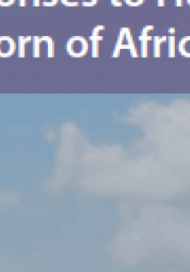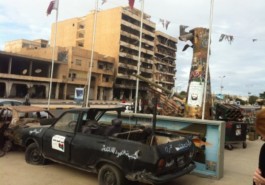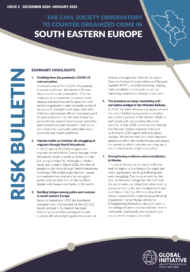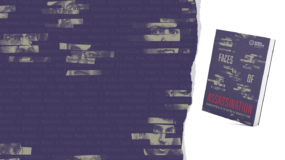Posted on 10 Oct 2016
 As millions of people seek passage to Europe in order to escape conflict, repression, poverty and natural catastrophe, their movements are enabled and encouraged by ruthless professional criminal networks that earn billions of pounds from this insidious trade.
As millions of people seek passage to Europe in order to escape conflict, repression, poverty and natural catastrophe, their movements are enabled and encouraged by ruthless professional criminal networks that earn billions of pounds from this insidious trade.
Migrant, Refugee, Smuggler, Saviour, a highly rated new book written by two Global Initiative staff, Peter Tinti and Tuesday Reitano, investigates one of the most under-examined aspects of arguably the great migration crisis of our time to discover who profits from it.
The explores the spectrum of actors who comprise the smuggling industry, from ‘family business’ networks, to the less common but more publicised criminal gangs. It exposes the arguably the cynical conflation of human trafficking with human smuggling, which is used to twist the almost universal disapproval of modern slavery to gain support for policies that criminalise the act of migration itself.
The human suffering that results extends well beyond the Mediterranean: the smugglers’ routes cross the Sahara, penetrate deep into the Balkans and reach hidden corners of Europe’s capitals. But smugglers are also revered as saviours by many of those they move, delivering them to a safer place and a better life. Disconcertingly, it is often criminals who help the most desperate, when the international system turns them away.
This book is a measured attempt, born of years of research and reporting in the field, to better understand how people-smuggling networks function, the ways in which they have evolved, and their long term impact on both migration and global organised crime.
Read an excerpt here: The New Criminal Heroes Offering New Lives in Europe
Buy a copy on Amazon.co.uk.
Early Reviews
This is a fascinating, nuanced and highly necessary account of an underworld that is much discussed but little understood, written by two of the leading experts in the field. I highly recommend it.’ — Patrick Kingsley, Migration Correspondent, The Guardian
‘Powerful analysis, groundbreaking research, vividly and journalistically expressed. This is a must-read for policy makers – and anyone who wants a more truthful approach to a defining story of our age.’ — New Internationalist
‘A graphic and highly readable account of the global human smuggling industry which dispels many of the myths surrounding this issue. Investigative journalism at its very best.’ — Jeff Crisp, Research Associate, Chatham House, and former Head of Policy Development and Evaluation, UNHCR
‘A compelling and fresh perspective on migration, the business of smuggling and the risks people are willing to take for a chance at a better life. Reitano and Tinti have set the bar on empirical research interwoven with the often tragic stories of migrants and smugglers. A must read.’ — Anton du Plessis, Executive Director, Institute for Security Studies
‘Tinti and Reitano’s book brings to life the tragic dimensions of the current refugee crisis and the smugglers who are an indispensable element in the refugees’ mobility. Grounded in a deep knowledge of the economics, politics and corruption behind this business, the authors present an account that is both readable but contains profound insights.’ — Louise Shelley, Director, Terrorism, Transnational Crime and Corruption Center, George Mason University
‘Migration is one of today’s game-changers and this book, rich in detail and well documented, excels in reminding the reader that migration reflects a basic human aspiration — the desire for dignity and security, but more particular, that for a better life. If this sounds familiar, it should—and no law is to change this.’ — Jean-Luc Lemahieu, Director Policy Analysis and Public Affairs, United Nations Office on Drugs and Crime (UNODC)
‘Tinti and Reitano offer a vivid virtual reality tour of the present-day odysseys of irregular migrants, from Aleppo and Agadez to Austria and the Arctic. Through their expert interpretation, we discover just how poorly our rigid labels capture the complexities of these informal political economies — and just how easily criminalisation can feed the smuggling industry it is meant to undermine.’— James Cockayne, Head of Office at the UN, UN University, and author of Hidden Power: The Strategic Logic of Organised Crime



